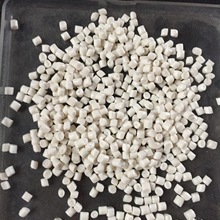It seems Netflix and Marvel's latest show Iron Fist is not so punchy.
While the two brands have rarely failed to impress with their small screen superhero sagas, critics don't seem to love the latest addition to Netflix's library.
The show, which launches on March 17, follows Danny Rand (Finn Jones), a rich kid who returns to his hometown of New York after being missing (presumed dead) for years, now touting expert kung fu skills and the ability to call on the mystical powers of the Iron Fist, which makes his fist... really strong.
SEE ALSO:Netflix's 'Iron Fist' trailer looks worthy of its Marvel brethrenThe series is the fourth and final installment in the street-level superhero stories (following Daredevil, Jessica Jonesand Luke Cage) that will tie together and culminate in the super-team miniseries, The Defenders.
Here's what some critics had to say aboutIron Fist:
Danny Rand: Not so super?
 Marvel’s Iron FistCredit: netflix
Marvel’s Iron FistCredit: netflixDaniel Fienberg, The Hollywood Reporter:
Matt Murdock is driven by his Catholic guilt, Jessica Jones by traumatic assault and consent issues, Luke Cage by America's multi-century history of imperiled black masculinity. Iron Fistarrives in a deep hole amid concerns about its curly-haired, blonde protagonist appropriating Asian culture, but the bigger problem ends up being that he's barely even appropriating. There's no specificity to Danny's experience other than the most generic of identity crises -- like the world needed another billionaire vigilante — and Jones is far too placid a leading man to give any sense of Danny's internal torment. He's not placid in a Zen way, just tepid like room temperature. Rather than being a man who found enlightenment through tragedy and disassociation from his upbringing, Danny comes across like a spoiled frat boy who took a Comparative Religion class and spends a few months picking up coeds by telling them he's totally into meditation and tai chi now.
Rick Marshall, Digital Trends:
Mashable Top StoriesStay connected with the hottest stories of the day and the latest entertainment news.Sign up for Mashable's Top Stories newsletterBy signing up you agree to our Terms of Use and Privacy Policy.Thanks for signing up! Jones still falls short of the character-defining performance that his Netflix predecessors – Daredevilstar Charlie Cox, Jessica Jonesstar Krysten Ritter, and Luke Cagestar Mike Colter – all provide.
Where each of the aforementioned actors had a moment or two that firmly entrenched them as the living embodiments of the comic-book characters they portrayed (the hallway fight sequence in the first season of Daredevil, for example), Jones’ Danny Rand never quite finds that epic moment in the first half of the series. It’s not for lack of opportunities, either, as the story that develops over the first six episodes is never lacking in dramatic potential that goes somewhat unrealized.
Of all three lead characters in Marvel’s Netflix franchise, Danny Rand could very well be the most difficult to connect with for the average viewer. The first six episodes of Iron Fistpaint him as a boundless optimist with a Zen perspective on life, a net worth measured in billions, and a streak of frustrating naivety to go along with his somewhat ill-defined supernatural powers. Although he’s part of Marvel’s quartet of “street-level” heroes, there is very little “street” about Danny Rand, and Jones never quite manages to bridge that disconnect between the character as he’s written and the audience’s sphere of empathy.
In fact, many critics would prefer Colleen Wing (Jessica Henwick) to be the hero
 Marvel's Iron FistCredit: netflix
Marvel's Iron FistCredit: netflixMaureen Ryan, Variety:
Why couldn’t Henwick be the star of Iron Fist? Or another actor of Asian descent? After all, part of what made Jessica Jonesand Luke Cagestand out were the distinct identities and concerns their protagonists carried into battle. Imagine an “Iron Fist” in which an Asian actor with a great deal of presence and real fighting chops (which Jones lacks) plays a man trying to reclaim his business empire from a group of white characters who don’t trust him and underestimate his skills. Those kinds of social, political, and moral clashes among specific characters and cultures could have amped up the drama — assuming the episodes didn’t take forever to establish relationships and dilemmas.
Luke Lancaster, CNET:
Colleen Wing is the standout in the supporting cast, torn between personal honour, the realities of survival and the need to dish out some old-fashioned ass-kickings. It feels like she's doing a better job telling a version of Danny's grounded-in-reality story than he is.
The show, in general, is too boring
 Marvel's Iron FistCredit: netflix
Marvel's Iron FistCredit: netflixAlan Sepinwall, Uproxx:
The action scenes throughout the first six episodes are few and far between, and when they come, they’re filmed and edited in a manner where it becomes hard to tell what Danny is doing, or if he’s remotely the brilliant fighter he’s being sold as. The first few fights have all the actors, Jones in particular, moving so slowly and tentatively, it feels like they filmed the first rehearsal and moved on.
Jim Vejvoda, IGN:
Iron Fist, exec produced by Dexter’s Scott Buck, is Marvel’s most generic Netflix series yet. So much of it feels familiar from many other recent superhero tales — Batman Begins, Doctor Strange, even a bit of Iron Manand Arrow— and the story the series has thus far offered in its first six episodes does little to shake up that well-worn formula.
The Verdict: Marvel's Iron Fiststarts off sluggishly, seeming far more like a soap opera than a superhero series, complete with bland, pretty, rich people sneering and scheming over family fortunes.
Gavia Baker-Whitelaw, The Daily Dot:
Netflix dramas are designed for binge-watching, but even by Netflix standards, Iron Fistis glacially slow. In the first six episodes, there’s about three episodes’ worth of plot—and most of it belongs to the Meachums. The rest is split between Colleen Wing’s story, and Danny’s conflict with the criminal organization known as the Hand, who are just as two-dimensional as they were in Daredevil.
By placing the Meachums in a central role, showrunner Scott Buck (Dexter) turned Iron Fistinto a chilly boardroom drama about business tycoons. This might have worked if Danny returned home to a slick, fast-paced setting like The Good Wifeor Dirty Sexy Money, but Iron Fistdoesn’t have that kind of energy. It’s mostly about rich people being nasty in minimalist offices, with occasional breaks for Danny to run away and punch someone.
Diversity fail + the "white savior" problem
 Marvel's Iron FistCredit: netflix
Marvel's Iron FistCredit: netflixKwame Opam, The Verge:
Much has already been written about Danny’s status as a white savior. The title of Iron Fist doesn’t just make him a superhero; he’s the latest in a long line of protector warriors for his stereotypical Orientalist culture. That’s true to the character’s comics origin, as told during comics’ so-called Kung-Fu Craze of the mid-1970s. But the story doesn’t fly in 2017, so the show took some steps to correct that past, by making K’un-Lun at least nominally diverse. (Or so we’ve been promised. The episodes Netflix released don’t include any expository sequences in K’un-Lun.) However, the show never interrogates Danny’s questionable position. He’s still a privileged white member of the 1 percent drawing power from a fictionalized Asian culture, destined to save his corner of New York from evil. Given that he’s still the one person capable of taking up the Iron Fist mantle, it’s hard to decouple his whiteness from his elevated position.
In the first episode, Danny breaks into unsubtitled Mandarin upon learning [Colleen is] a martial artist, apparently assuming Asian women he casually meets on the street are happy to speak Mandarin with a white stranger. Two episodes later, he mansplains kung-fu to her, all to better illustrate how she needs his protection
Susana Polo, Polygon:
And let me be clear: Iron Fist’sproblems with its portrayal of Asian cultures and Asian-Americans are embedded throughout every episode. It’s just that its problems with delivering exposition, crafting consistent characters, and even basic dialogue writing run right alongside.
Sure, this is a show where a white male character explains how to punch to an Asian-American, female head of her own dojo, inher own dojo — wait, let me be painfully specific. A white male character explains his martial art — which was made up by white men in the 1970s as a nonspecifically Asian but definitionally more powerful technique than those invented by actual Asian cultures — to an Asian-American, female expert in actual martial arts developed by actual Asian cultures. But it is also a show that — in a scene that is played completely straight — delivers vital exposition by having a homeless man walk up to the lead and ask him if he wants to google anything on the phone that he just stole. Less than an episode later, this mystical Exposition Hobo friend dies of an apparent overdose with no warning or impact to the narrative.
Bottom line? Sorry, Netflix.
Featured Video For You
The hidden clues lurking in the 'Stranger Things' Season 2 trailerTopicsMarvelNetflixReviews
'Iron Fist' reviews: Does the show live up to to its Marvel predecessors?
人参与 | 时间:2024-09-22 06:47:22
相关文章
- Best CPU Deals, AMD vs Intel: Holiday CPU Buying Guide
- Greta Thunberg nails the #2019in5words challenge
- Scientists made an environmentally friendly gin from peas. Yes, it will still get you drunk.
- Peloton Black Friday deal: 24% off Original Peloton Bike
- 29 Dive Bars, Saloons, and Taverns Where the Vibe Is Unbeatable
- Is it safe to eat snow?
- How NASA kept its Mars rovers alive long past their expiration dates
- NK slams UN meeting on satellite launch, 'robbery' US demand
- 广州市白云区供销联社携手6所院校15支队伍,加力提速推进“百千万工程”
- Jack Teixeira: Why the Pentagon documents leaker had access to so much classified information






评论专区